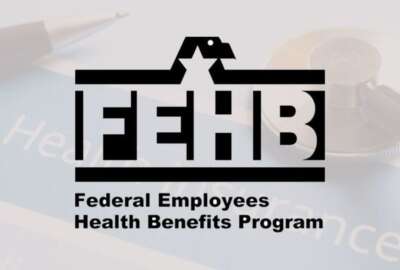OPM pauses new FSAFEDS enrollments after fraud surge
Hundreds of feds with FSAs have seen fraudulent activity on their accounts. OPM has since paused all new enrollments to try to prevent further fraud in FSAFEDS.
Editor’s Note: This story was updated May 30 with more information from OPM’s inspector general office regarding the current enrollment pause in FSAFEDS.
The Office of Personnel Management has temporarily paused all new enrollments in FSAFEDS — the government’s flexible spending account program — after a surge in fraudulent activity affecting hundreds of federal employee accounts.
OPM’s inspector general office shared more information about the pause on Thursday, saying it comes “out of an abundance of caution,” and to try to prevent further fraud, the OIG said in a special fraud alert.
In addition to new enrollments, the enrollment pause also applies to any current enrollee in FSAFEDS who experiences a qualifying life event (QLE), such as a marriage or the birth of a child.
During the pause, current FSAFEDS enrollees are still able to make reimbursement claims. Once OPM chooses to resume the enrollment functionality, FSAFEDS will retroactively adjust any elections based on QLEs. But currently, OPM has not set a date for when the functionality will resume.
The pause comes after several hundred federal employees currently enrolled in FSAFEDS experienced recent fraudulent activity on their accounts. Scammers have used the employees’ personal information to either create new, fraudulent FSAs, or otherwise make fraudulent reimbursement claims on existing FSAs.
HealthEquity, the vendor that administers FSAFEDS, previously notified OPM of the recent rise in fraudulent activity.
“OPM is working with the vendor to secure impacted accounts, compensate impacted individuals and implement additional anti-fraud controls,” an OPM spokesperson said in an email statement.
The fraudulent activity in FSAFEDS is relatively limited in scope, since it’s affecting just a few hundred federal employees’ accounts. In total, the scammers have managed to shore up a couple hundred thousand dollars, Politico first reported last week.
Since becoming aware of the fraud, HealthEquity has already taken additional security measures by implementing Login.gov requirements and setting up dual-factor authentication for federal employees to be able to log in to their FSAFEDS accounts.
A HealthEquity spokesperson declined to comment with any additional details on the current status of the affected FSAFEDS accounts, or if there would be further changes to security protocols.
There’s currently no evidence that the fraudulent activity is coming from a compromise in either OPM’s or HealthEquity’s online systems, but the investigation into the source of the fraud is ongoing.
In the meantime, the accounts of any affected individuals have been secured, and OPM is in the process of reimbursing all impacted enrollees in full.
Agency benefits officers and payroll providers are advising federal employees who use FSAFEDS to review and verify their leave, earnings and FSA account statements. If employees notice any suspicious charges or activity, they can call FSAFEDS at 877-372-3337.
Each year during Open Season, federal employees have the option to enroll in FSAFEDS, but as of last plan year, less than 20% of eligible feds actually have an account set up in the health program.
FSAFEDS lets current federal employees set aside pre-tax dollars from their paychecks to go toward covering eligible health care, prescription, dental, vision and child and adult day care expenses. Enrollees will usually pay for the medical costs out of pocket and are then reimbursed using funds from an FSA.
For 2024, employees who are enrolled in an FSA can contribute up to $3,200 for the entire year. The funding has to be used within a given plan year, but there is an option to roll over up to $640 to the following year. Many federal health experts highly recommend opening and contributing to an FSA, as it lets participants save money by contributing to health expenses pre-tax.
The overall eligibility pool for FSAFEDS has also recently expanded. Beginning in January, for plan year 2024, OPM made active-duty service members as well as members of the Active Guard Reserve eligible to start a Dependent Care Flexible Spending Account (DCFSA). The program expansion made about 400,000 active-duty service members newly eligible for the benefits of FSAs.
Copyright © 2025 Federal News Network. All rights reserved. This website is not intended for users located within the European Economic Area.
Drew Friedman is a workforce, pay and benefits reporter for Federal News Network.
Follow @dfriedmanWFED






